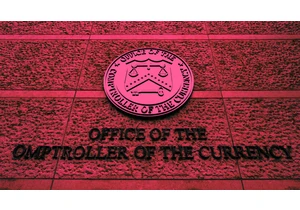Few statements communicate a sentiment more directly than the four words Jack Dorsey, a cofounder of Twitter, posted over the weekend on the platform he no longer controls: “delete all IP law,” was his simple message.
delete all IP law
— jack (@jack) April 11, 2025
That sentiment was backed by Elon Musk, the current owner of the platform Dorsey founded—since renamed X. And given that Big Tech appears to be working hand in glove with the U.S. president, with Musk remaining a close confidante of Donald Trump’s (despite a few tariff-shaped bumps in the road), their seemingly casual exchange deserves serious attention.
“A conversation that in another context, in another time, could have just been seen as casual conversation or irrelevant or interesting and part of the public debate, now inspires realistic regulation and fears about whether it might become policy in a week’s time,” says Carissa Véliz, an AI ethicist at the University of Oxford. The fact that short, snappy tweets making seemingly outlandish claims about dismantling intellectual property rights need to be taken seriously says a lot, she adds, “about how power has changed hands and power relations are working.”
Tech companies have already been lobbying hard for changes to copyright laws. In the U.K., the government recently consulted both the public and industry on proposed reforms to longstanding copyright protections—reforms that would require copyright owners to opt out if they don’t want their work to be legally used to train AI systems.
Those in the creative industries have responded to this latest proposal with mockery and outrage. “‘Delete’ IP law and you delete one of the main incentives to create at all,” says Ed Newton-Rex, a former executive at Stability AI and now one of the most outspoken critics of Big Tech’s approach to copyright and AI. Newton-Rex calls the Musk-Dorsey exchange “a ludicrous suggestion, from tech execs who are completely out of touch with working creators.”
“It’s not surprising that two businessmen who would stand to gain a lot from the disappearance of IP law support that view,” Véliz points out. But that doesn’t make it a smart idea for the rest of us—nor one supported by people outside the Musk-Dorsey tech bro axis.
According to a YouGov survey, four in 10 Americans believe AI should be much more regulated than it currently is, with another three in 10 saying “somewhat more” regulation is needed. Nearly 80% of people worry that AI will diminish human creativity and drive. In the U.K., more than three in four people believe AI companies should pay royalties for using people’s work to train their models—and public skepticism about AI’s creative impact is widespread.
“Among the many worries that there are is that if we do away with IP law, we disincentivize creators from creating,” says Véliz. That would make it more likely for AI to train on its own outputs, degrading the quality of its results over time. But beyond that, it risks dismantling more than a century of functioning copyright law just to support a business model that’s already made plenty of money for its founders—revealing where those same tech leaders think individual rights should stand.
https://www.fastcompany.com/91316383/elon-musk-and-jack-dorsey-want-to-kill-ip-law-that-would-be-a-huge-mistake?partner=rss&utm_source=rss&utm_medium=feed&utm_campaign=rss+fastcompany&utm_content=rss
Zaloguj się, aby dodać komentarz
Inne posty w tej grupie

Last Friday, Elon Musk tweeted a grand unifying theory for America’s path to prosperity. “We need to shift people from low- to negat

Several of the largest U.S. banks are reportedly pausing or reassessing how they send sensitive information to the Office of the Comptroller of the Currency (OCC) following a major cyberattack on

President Donald Trump‘s administration has ordered U.S. Justice Department employees not to post anything on social media rela

OpenAI is working on its own X-like social media network, the Verge reported on Tuesday, citing multiple sources familiar with the matter.


Mark Zuckerberg’s marathon stint on the stand in the Federal Trade Commission’s (FTC) antitrust trial

